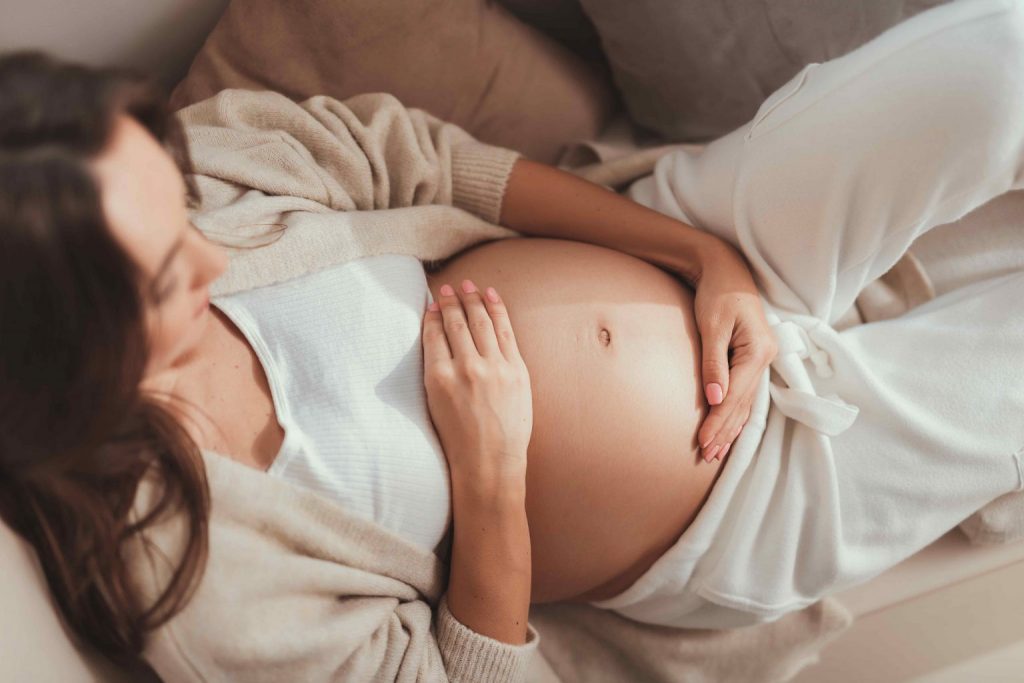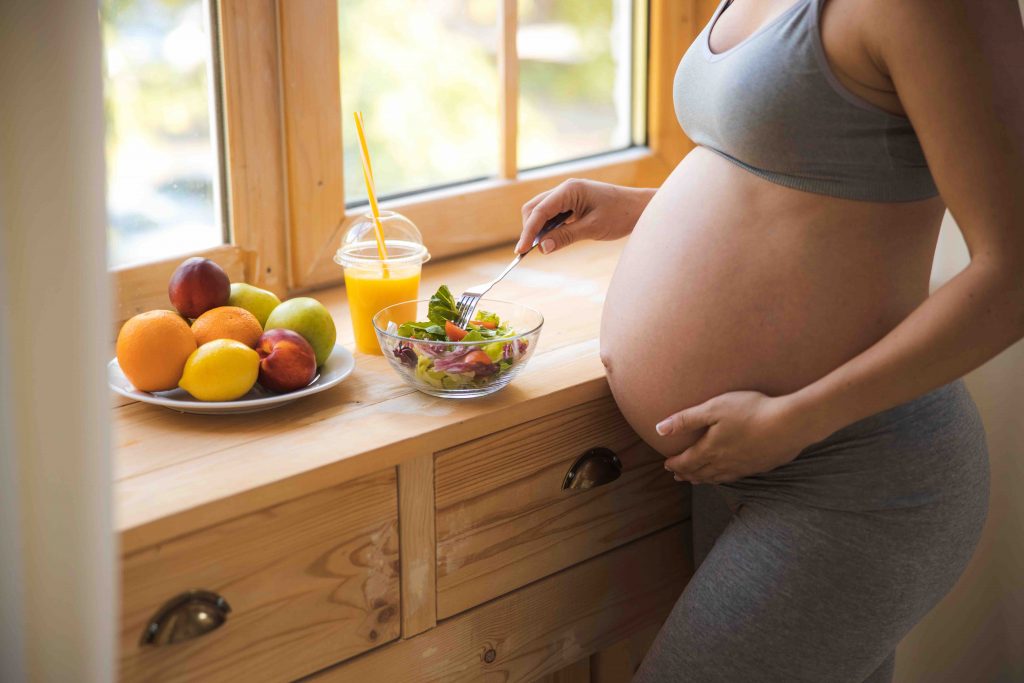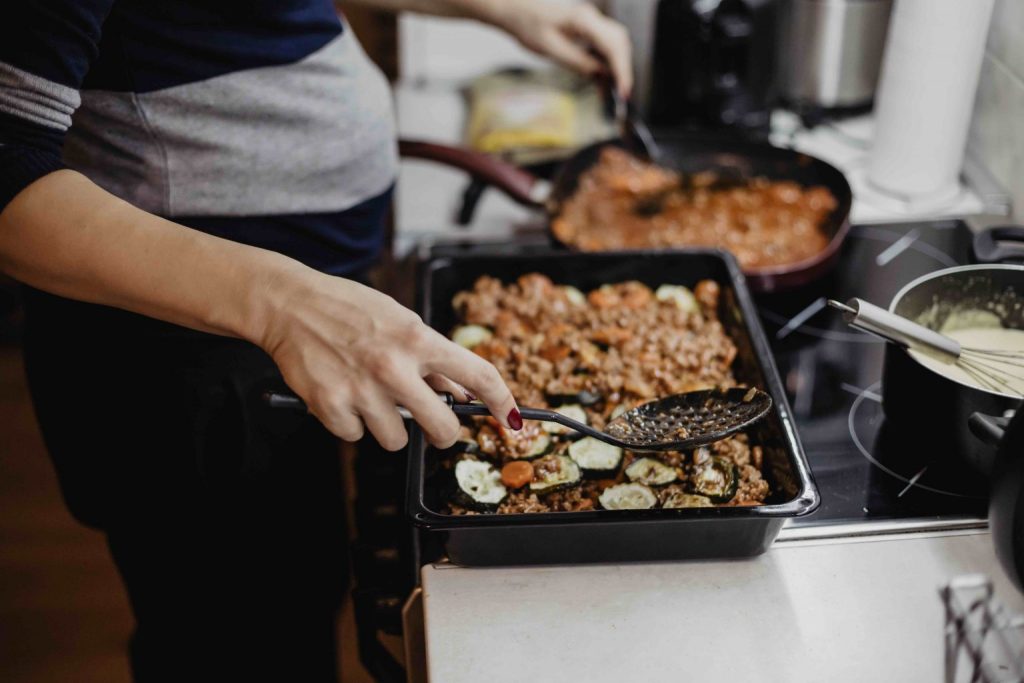Eating well during pregnancy
What should you eat (or avoid) when you’re pregnant? There are a few rules to remember: First, I
review the basics, remind myself of the key things to watch out for and prepare my notebook to list
all the new meals I can prepare during this special time. Here’s my mini nutrition and pregnancy
guide to keep on hand!
Nutrition during pregnancy: My guide

During pregnancy, the basic rules are those of any balanced diet, except that I have the best reason
in the world to stick to them:
● 5 or more servings of fruits and vegetables a day.
● Dairy products and green vegetables for calcium.
● Starchy foods, such as cereals (pasta, rice, bread, etc.) or pulses (white beans, lentils, etc.). I
eat as much as I like and enjoy a variety of foods. I prefer wholemeal cereals, which are rich
in fibre.
● Meat, fish and eggs (if I eat them) for protein and the beneficial nutrients they provide. I
change the way they are cooked a little, and I am more careful than usual in selecting them.
● No alcohol but plenty of water (and more).
● Go easy on sweets, animal fats and processed foods, which are often too salty, to ensure
healthy digestion and limit weight gain and water retention.
I am a little more vigilant than usual when preparing my meals

At the beginning of my pregnancy, I test to see if I am immune to toxoplasmosis, and I am extra
vigilant with certain foods:
● I cook my meat and fish thoroughly (and temporarily avoid smoked fish and sushi, I
promise!).
● I wash my vegetables thoroughly and cook them a little more than usual. Instead of crunchy,
I opt for tender!
● To avoid the risk of listeriosis (bacteria that cannot be detected by smell or taste), I take care
to avoid uncooked (including smoked) cold cuts, cheeses made from raw milk, minced
meats, sprouted (raw) seeds, etc. I take the opportunity to discover new ways of eating!
Checklist: My key nutrients during pregnancy

Depending on my doctor or midwife’s advice, I may receive a little help with food supplements
because I need more of certain nutrients:
● Iron levels should be monitored at the end of pregnancy to avoid any risk of anaemia. I may
also need it if I frequently feel nauseous at the very beginning of pregnancy. I opt for fish,
meat and legumes to prevent iron deficiency. Vitamin C can also help with the absorption of
iron.
● Folic acid or vitamin B9 is involved in the development of my baby’s nervous system. I find it
in fruit and vegetables. My doctor may prescribe it to me as soon as I want to conceive
because my needs are high.
● Vitamin D deficiency can occur during pregnancy and may require supplementation,
especially in winter if I lack sunlight.
● Vitamin A should be consumed in sufficient quantities. Eating orange or dark green fruit and
vegetables is enough in most cases!
● If I don’t eat much oily fish (e.g. because I prefer low-mercury fish), an omega-3 supplement
is an option, as recommended by my doctor. Nuts of all kinds and various vegetable oils also
contain these good fatty acids.
● My body needs calcium to build my baby’s bones, especially in the third trimester of my
pregnancy. I get this by eating dairy products and leafy vegetables.
What if I’m a vegan? I talk to my doctor about it, and he or she will likely prescribe vitamin B12,
vitamin D, iron, iodine or calcium to supplement my dietary intake during my pregnancy.
The most important thing? Do not pre-empt or self-medicate: an excess can be just as harmful as a
deficiency when it comes to vitamins and minerals. I seek professional advice before taking
supplements, which are not always necessary. On the other hand, I focus on tasty recipes because,
while following these recommendations, I intend to enjoy myself in the kitchen!
For more articles and tips around your personalised training and health – Visit our other articles







